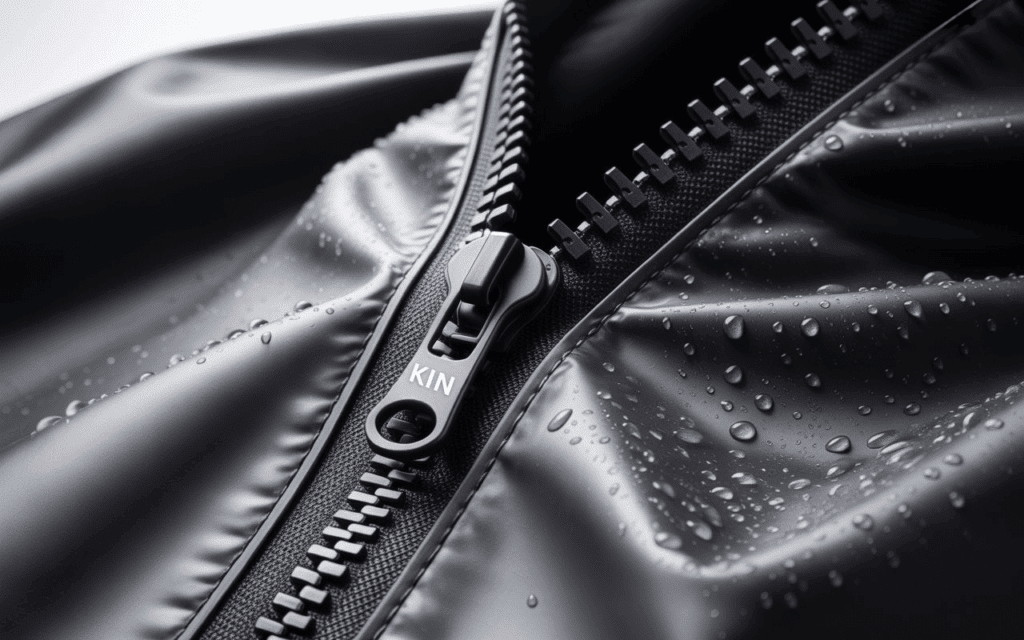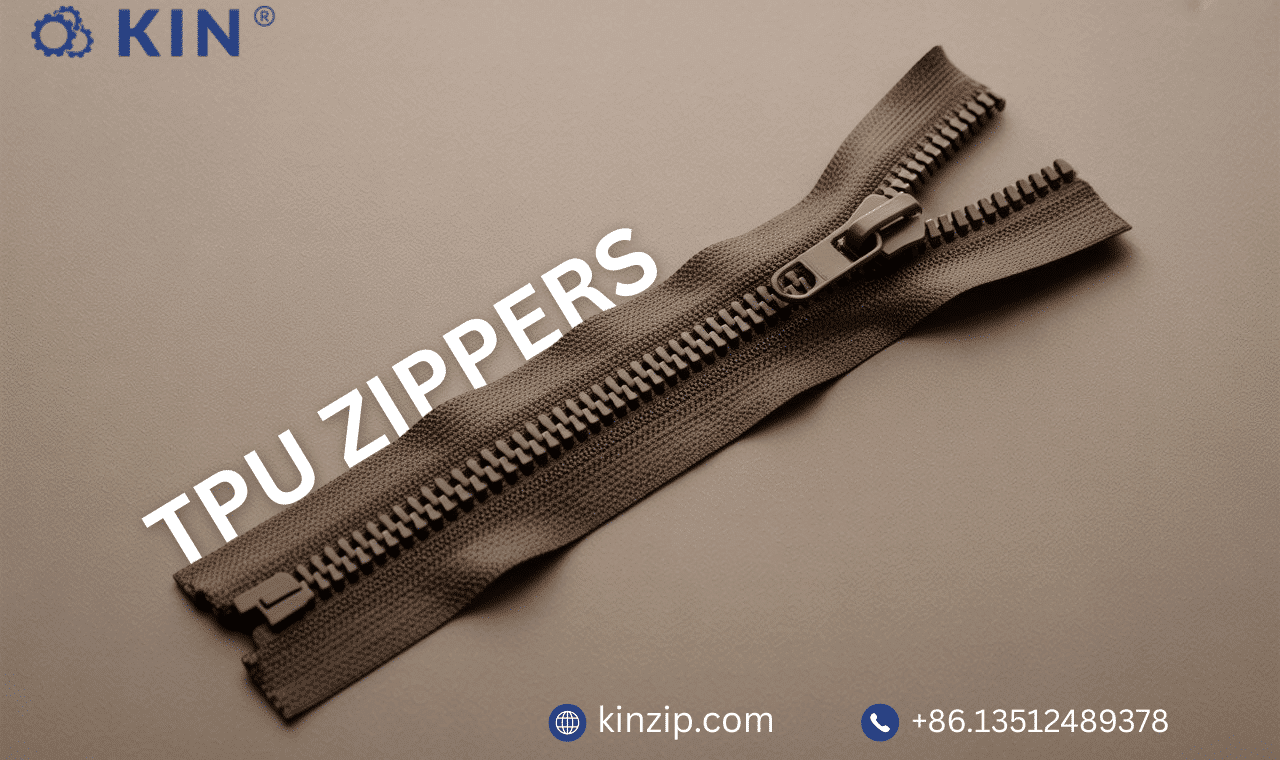Introduction
If you’ve ever zipped up a rain jacket, secured a diving suit, or closed a waterproof bag, you know that the zipper is often the first point of failure. Water finds its way in, traditional zippers corrode, and durability becomes a recurring issue. For manufacturers of waterproof gear, this is more than a minor inconvenience—it’s a challenge that directly impacts product quality and customer trust.
Enter TPU zippers. Made with thermoplastic polyurethane (TPU), these advanced closures are redefining what waterproof and airtight sealing should look like. They combine strength with flexibility, creating solutions that are as tough as they are versatile. But what makes them so important to the future of waterproof gear manufacturing? Let’s break it down.
What Are TPU Zippers and How Do They Work?
A TPU zipper is a specially engineered closure coated with thermoplastic polyurethane, a material known for its elasticity, abrasion resistance, and water-tight properties. Unlike traditional metal or coil zippers, TPU zippers form a protective barrier against water and air infiltration.
The TPU coating acts like a shield, creating a smooth surface that bonds tightly around the zipper teeth or coil. This makes it possible to achieve airtight and waterproof sealing without sacrificing usability. For industries where exposure to water, chemicals, or extreme conditions is unavoidable, TPU zippers provide a reliable edge.
Why Are TPU Zippers Better for Waterproof Gear?
Superior Waterproof and Airtight Sealing
Traditional zippers may resist light moisture, but under pressure—literally—they fail. TPU zippers are engineered to provide airtight closure, ensuring no leakage even in marine or diving environments.
Durability in Harsh Environments
From saltwater exposure to industrial wear, TPU zippers withstand conditions that quickly degrade standard closures. They resist corrosion, stretching, and cracking, making them ideal for long-term performance.
Flexibility Without Compromising Strength
One of TPU’s defining traits is flexibility. Gear manufacturers benefit from zippers that can bend and move with fabric without losing their seal. This balance of flexibility and resilience is what makes TPU zippers stand out in technical apparel and protective gear.
What Industries Benefit Most from TPU Zippers?

Outdoor Gear and Sportswear
Hikers, climbers, and adventure enthusiasts demand gear that performs in unpredictable environments. Backpacks, tents, and jackets fitted with TPU zippers keep contents dry, no matter the conditions.
Marine and Diving Equipment
For divers and marine professionals, a faulty zipper isn’t just inconvenient—it’s a safety risk. Dry suits, marine bags, and watertight cases rely on airtight zippers to maintain security under pressure.
Protective Clothing and Industrial Applications
In sectors like chemical handling, hazmat response, and healthcare, protective suits need airtight sealing to keep contaminants out. TPU zippers provide the secure closure systems these industries can’t compromise on.
TPU Zippers vs. Traditional Waterproof Solutions: What’s the Difference?
When compared to other waterproof zipper types, TPU zippers consistently come out ahead. Here’s a quick comparison:
- TPU Zippers – Airtight, durable, flexible, resistant to chemicals and saltwater.
- PVC-Coated Zippers – Affordable but heavier, less flexible, and prone to cracking.
- Rubberized Zippers – Strong initial seal but degrade over time with exposure to heat and UV.
In short, TPU zippers offer the best balance of performance, longevity, and adaptability, which is why more manufacturers are shifting toward them.
How TPU Zippers Shape the Future of Manufacturing
Waterproof gear is no longer niche—it’s mainstream. From urban commuters needing rainproof jackets to professionals in industrial sectors, the demand for high-performance waterproof products is growing.
Manufacturers are investing in advanced closure systems like TPU zippers because they allow gear to meet higher standards without adding weight or compromising design. As sustainability gains momentum, TPU’s recyclability potential also offers an advantage over other plastics and coatings.
Looking ahead, TPU zippers will play a central role in next-generation gear manufacturing, not just as functional parts but as critical design elements that define product reliability and consumer trust.
Conclusion: Why Manufacturers Should Choose TPU Zippers Now
For manufacturers of waterproof gear, the choice of zipper is no small detail—it’s the difference between failure and excellence. TPU zippers provide unmatched sealing, durability, and adaptability, making them the clear choice for industries that demand more from their products.
Kinzip has been at the forefront of airtight and waterproof zipper technology since 2005, delivering solutions trusted across outdoor, marine, and industrial applications. If you’re ready to upgrade your gear with TPU zipper technology, now is the time to make the switch.

